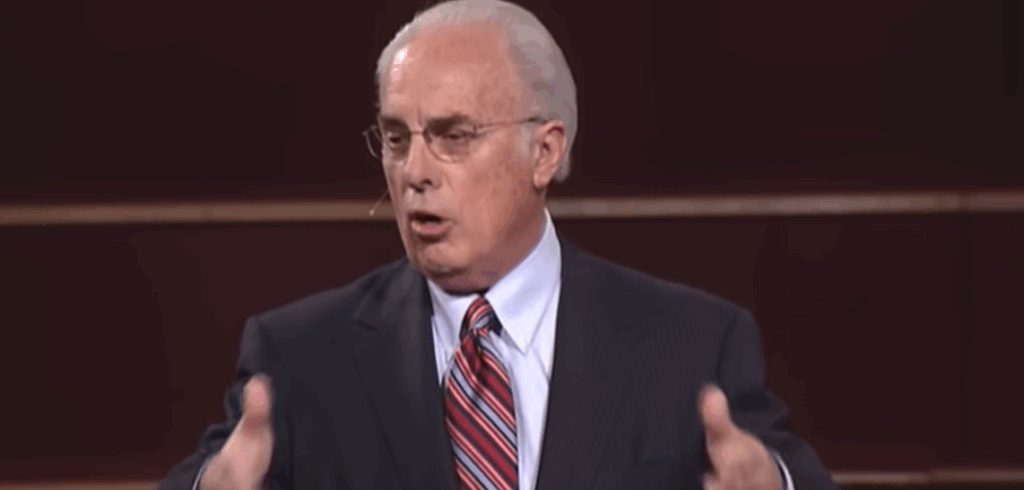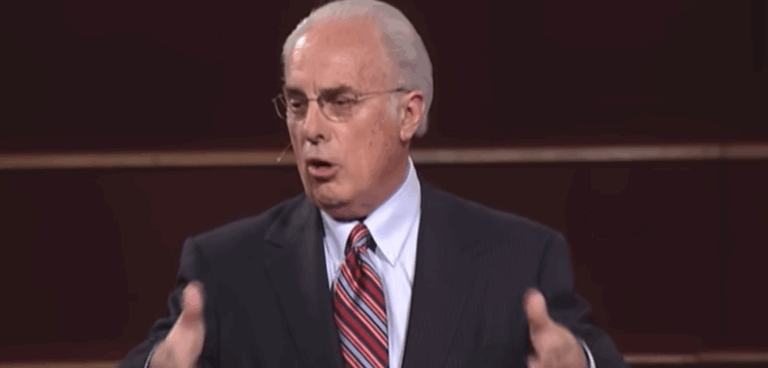With an estimated net worth of $14 million, John MacArthur led a life remarkably similar to that of a corporate leader who gains influence over decades by making steady, consistent decisions rather than by using flashy tactics. He served for more than 50 years at Grace Community Church in Sun Valley, California, and became one of the most well-known pastors in America. Even though his wealth was small in comparison to televangelists like Joel Osteen or Kenneth Copeland, it was still substantial enough to rank him among the most affluent religious figures of his time. This wealth came from preaching discipline, writing extensively, and establishing institutions that were remarkably successful in expanding his reach—not from preaching prosperity.
Since he started pastoring in 1969, millions of listeners have found MacArthur’s verse-by-verse exposition style to be remarkably clear. He attracted thousands of people to his church every week with his meticulous instruction and unrelenting output, and millions more through his Grace to You radio program. His voice was effectively amplified by that broadcast, which was aired over a thousand times every day in various languages and continents. MacArthur left a legacy that outlasted him by utilizing both conventional radio and digital media to make sure his sermons were not only easily listened to but also incredibly resilient.
Another important aspect of his financial path was publishing. MacArthur solidified his impact in Christian literature with nearly 400 books, such as Strange Fire, Twelve Ordinary Men, and The Gospel According to Jesus. His MacArthur Study Bible sold millions of copies worldwide and was translated into many other languages, making it one of the best-selling study Bibles ever. In many homes and seminaries, this one work alone was especially helpful, ensuring not only financial success but also theological prominence. His wealth was largely derived from the royalties from books, study guides, and theological commentary.
John MacArthur Bio & Career Information
| Category | Information |
|---|---|
| Full Name | John Fullerton MacArthur Jr. |
| Date of Birth | June 19, 1939 |
| Date of Death | July 14, 2025 (aged 86) |
| Nationality | American |
| Known For | Pastor of Grace Community Church, President of The Master’s University and Seminary |
| Occupation | Pastor, Theologian, Educator, Author |
| Major Works | The MacArthur Study Bible, The Gospel According to Jesus, Strange Fire |
| Net Worth | Estimated $14 million (ranked among richest pastors in America) |
| Years Active | 1969–2025 |
| Reference | Wikipedia Profile – https://en.wikipedia.org/wiki/John_MacArthur_(American_pastor) |

His impact went beyond sermons and books. He was elected president of The Master’s University in 1985, and he established The Master’s Seminary the following year. These establishments produced enduring financial systems in addition to enduring educational legacies. As a result of his approach to biblical teaching, students from all over the world came to study under him. He broadened these institutions’ reach internationally through strategic alliances, and their tuition, gifts, and alumni support all contributed to the ecosystem that significantly raised his financial status.
There was bound to be criticism. According to reports, his family received over $12 million in ministry salaries and benefits over decades, prompting some on forums to wonder how a pastor who was dedicated to preaching against the prosperity gospel could live in luxury. He reportedly made over $400,000 in a single year. Detractors viewed this as hypocritical, but supporters maintained that the profits were the result of decades of hard work. The discussion brought to light a persistent social conflict: is financial success inherently incompatible with spiritual leadership, and when does ministry give way to business?
MacArthur appears to have a balanced fortune in relation to his peers. Joel Osteen and Pat Robertson both have estimated net worths of $100 million, while Kenneth Copeland, who is frequently criticized for his extravagant lifestyle, has an estimated net worth of $300 million. Steven Furtick, who is well-known for his modern megachurch model, has amassed a net worth of about $55 million, while Benny Hinn has a $60 million empire. MacArthur’s $14 million seems surprisingly small in comparison to such numbers, but it is still noteworthy. Despite being less ostentatious, his work was incredibly dependable in producing long-term wealth, as evidenced by his inclusion on the list of America’s wealthiest pastors.
His financial life has a multifaceted effect on society. His wealth was seen by some as a sign of success attained through leadership, teaching, and publishing that was especially inventive in its global scope. Others saw it as a contradiction between living comfortably and preaching humility. These discussions reflect larger worries about how organizations, whether religious or not, strike a balance between their ethical obligations and the demands of economic expansion. Pastors like Franklin Graham, who also oversees a multimillion-dollar ministry, and T.D. Jakes, whose media empire blurs the boundaries between church and business, have been the subject of similar discussions in recent years.
MacArthur’s supporters contend that his wealth was not spent on himself but rather was used to fund broadcasting, schools, and ministries that motivated people all over the world. His net worth, in their opinion, is merely the monetary equivalent of a larger influence that permeated millions of believers through teachings, books, and sermons. Despite his financial success, they view him as a pastor who prioritized biblical truth over personal luxury. However, detractors view even modest wealth among pastors as proof of institutional imbalance, whereby personal wealth is ultimately maintained by donations intended for spiritual work.
This conversation takes on a final dimension with the death of John MacArthur in July 2025 at the age of 86. Like his theological legacy, his financial legacy is complicated. He leaves behind thousands of sermons, books, and institutions that will continue to bring in money. More significantly, he leaves a cultural dialogue about faith and wealth in his wake. Does having a $14 million net worth indicate compromise, or is it the result of being a very resilient leader who put in a lot of overtime for more than 50 years?


